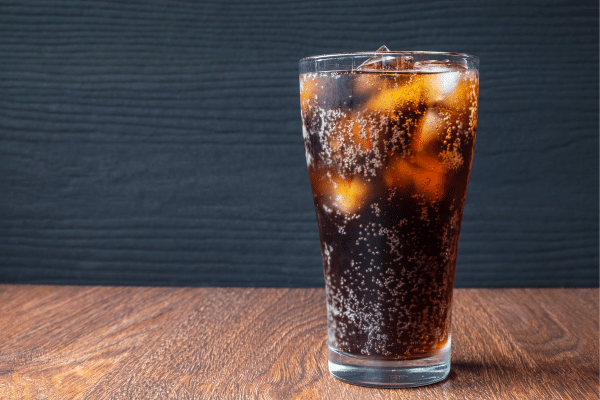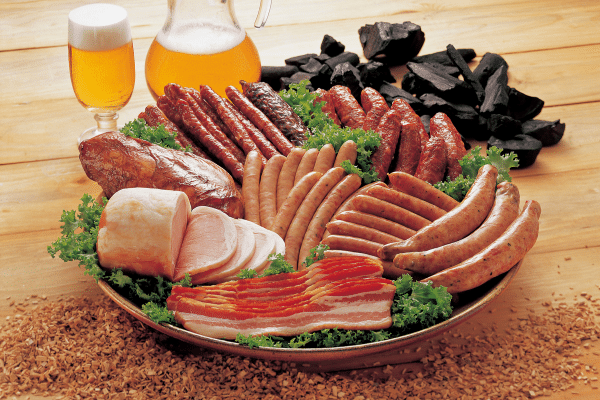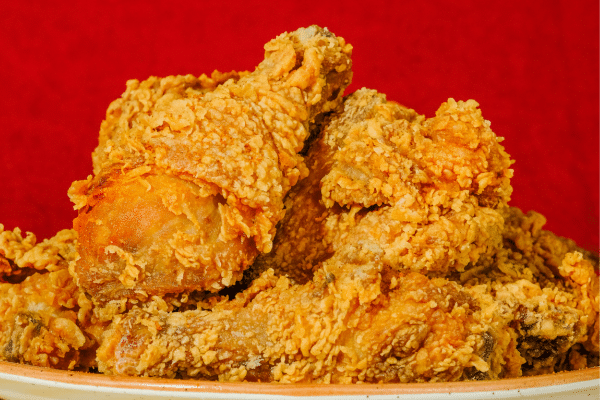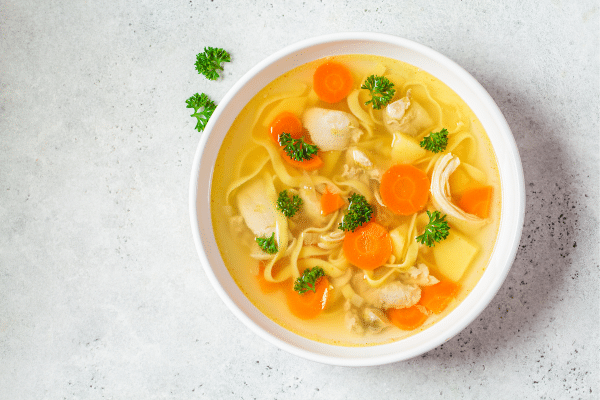Stroke stands as a formidable threat to global health, ranking high among the leading causes of disability and mortality. This condition, characterized by an abrupt interruption of blood flow to the brain, can be devastating. While numerous factors contribute to stroke risk, dietary choices play a pivotal role. The following sections delve into specific foods known for their potential to escalate the risk of stroke, offering insights into the underlying mechanisms and encouraging a proactive approach to dietary habits.
Contents
Soda

High sugar content in sodas is a major concern, primarily due to its contribution to obesity and diabetes, both of which are significant risk factors for stroke. Beverages laden with high fructose corn syrup or other sugars can lead to a detrimental cycle of insulin resistance and chronic inflammation. These conditions not only pave the way for type 2 diabetes but also contribute to the development of cardiovascular diseases, thereby elevating the risk of stroke.
The dangers of soda consumption are not limited to sugar-laden varieties. Artificially sweetened beverages, often perceived as healthier alternatives, have been linked to an increased risk of stroke. Studies suggest that these sugar substitutes may disrupt the gut microbiome and induce a preference for high-calorie, less nutritious food choices. This, in turn, can lead to a cascade of health issues including metabolic syndrome, a cluster of conditions that heightens the likelihood of stroke.
Processed Meat

Processed meats, a staple in many diets, come with a high content of preservatives like nitrates, known to elevate blood pressure, a primary risk factor for stroke. These additives, while extending shelf life and enhancing flavor, can lead to vascular complications. The resulting hypertension is a silent yet formidable contributor to the risk of stroke, often progressing unnoticed until it culminates in a health crisis.
The concerns with processed meats extend beyond preservatives to include high levels of saturated fats and cholesterol. These components are notorious for their role in the development of atherosclerosis, a condition where artery walls thicken due to the accumulation of fatty deposits. This narrowing and hardening of arteries not only impede blood flow but also set the stage for the formation of blood clots, significantly increasing the risk of stroke.
Refined Grains And Pastries

Refined grains and pastries, often high on the list of tempting foods, come with their own set of health implications. The primary issue lies in the rapid spikes in blood sugar and insulin they cause, courtesy of their high glycemic index. These spikes are not just fleeting disturbances; over time, they can lead to insulin resistance, a precursor to type 2 diabetes. Given that diabetes is a well-established risk factor for stroke, the indirect link between refined carbohydrates and stroke becomes hard to ignore.
Moreover, processed baked goods are laden with additives and preservatives, which can trigger inflammation within the body. Chronic inflammation is increasingly recognized as a silent threat, playing a role in the development of cardiovascular diseases, including stroke. The consumption of these refined products, therefore, not only contributes to immediate health concerns but also has long-term implications for vascular health and stroke risk.
Fried Foods

Fried foods, irresistible to many, are a significant source of trans fats, notorious for their adverse effects on arterial health. The consumption of trans fats leads to an increase in LDL (bad) cholesterol and a decrease in HDL (good) cholesterol, fostering an environment conducive to atherosclerosis. This condition, characterized by narrowed and hardened arteries, significantly hampers blood flow, increasing the risk of blood clot formation and, consequently, stroke.
The danger of fried foods doesn’t stop with trans fats. These foods are also extremely calorie-dense, contributing to obesity – another strong risk factor for stroke. Excessive calorie intake leads to weight gain, which strains the entire circulatory system. This additional strain not only elevates blood pressure but also makes the heart work harder, setting the stage for cardiovascular complications including stroke.
Canned Soups

Canned soups, often a quick and convenient meal option, are typically high in sodium, a known contributor to hypertension. Excessive sodium intake causes the body to retain water to dilute the salt, increasing both the volume of blood and the pressure on blood vessel walls. Hypertension, or high blood pressure, is one of the most significant risk factors for stroke, as it can lead to both the weakening of blood vessels and the formation of clots that can travel to the brain.
Besides high sodium levels, canned soups often contain various preservatives and additives. While these chemicals extend shelf life and enhance flavor, they can also have adverse effects on vascular health. The cumulative impact of these substances, coupled with other dietary and lifestyle factors, can increase the overall risk of stroke, making it imperative to carefully select and moderate the consumption of such processed foods.
Margarine And Butter Substitutes

Margarine and butter substitutes are often marketed as healthier alternatives to butter, but they come with their own set of concerns, particularly regarding trans fats. These artificially created fats, present in many margarines and spreads, are known to deteriorate heart health by increasing bad cholesterol and decreasing good cholesterol. This imbalance contributes to the development of atherosclerosis, a direct pathway to increased stroke risk due to impaired blood flow and potential clot formation.
In navigating the landscape of fats, it’s crucial to understand the composition of these products. While some margarines have reduced their trans fat content in response to health guidelines, being vigilant about reading labels is key. Opting for products with unsaturated fats and minimal or no trans fats can make a substantial difference in maintaining heart health and reducing the risk of stroke.
Alcohol

The relationship between alcohol consumption and stroke risk is complex and dose-dependent. Moderate alcohol intake can have some protective effects on heart health. However, heavy and chronic drinking is a major risk factor for stroke. Excessive alcohol consumption leads to a multitude of health issues, including high blood pressure and liver damage. These conditions, in turn, exacerbate the risk of stroke, making moderation critical.
Furthermore, heavy alcohol use is associated with atrial fibrillation, a type of irregular heartbeat. Atrial fibrillation can cause blood clots to form in the heart, which can then travel to the brain, leading to a stroke. The impact of alcohol on blood pressure, heart rhythm, and overall stroke risk underscores the importance of limiting intake and seeking professional help if alcohol consumption becomes problematic.
The Bottom Line
In the quest to reduce stroke risk, understanding the impact of dietary choices is paramount. Foods high in sugars, unhealthy fats, sodium, and additives contribute significantly to conditions like high blood pressure, diabetes, and atherosclerosis, all of which elevate the risk of stroke. Conversely, a diet rich in fruits, vegetables, whole grains, and lean proteins can help maintain optimal health and minimize stroke risk. Embracing a balanced and informed approach to eating, coupled with regular physical activity and healthcare consultation, is the most effective strategy for stroke prevention and overall well-being.


